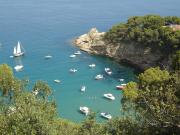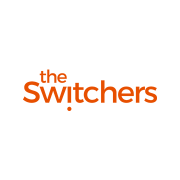

Subscriu-te al SCP News
Cross cutting strategies to free the Mediterranean from Marine Litter

The Mediterranean Region has been recognized as one of the areas most affected by marine litter in the world. But the region doesn’t want to lag behind and took up the challenge of freeing its sea from Marine Litter. It is developing a common culture of innovation and progress based on care for the Mediterranean environment and the efficient and circular use of resources.
It is our role to:
- To lead the switch to non-toxic and circular economies
Non-toxic and circular economies are essentials approaches to avoid marine litter. It is our role to prevent plastic items and non-sustainable goods to end up in the sea by finding alternatives and innovative solutions, to boost eco-businesses and to support their implementation.
SCP/RAC is highly involved in providing knowledge, training, advice and networking opportunities to businesses, entrepreneurs, financial agents, civil society organizations and governments to switch to a greener economy. The centre created the Switchers network of individuals, enterprises or civil society organizations already implementing innovative and ecological solutions that contribute to sustainable and fair consumption and production models.
- To support governments in the development and implementation of national regulations to stop Marine Litter generation.
SCP/RAC supports southern Mediterranean countries on the development of policy measures to prevent the generation of Marine litter like the ban of single-use plastic bags, the development of voluntary agreement with plastic bags distributors and producers as well as the development of EPR schemes.
- To provide direct support to Marine Protected Areas managers and marine litter practitioners:
MPAs are the guardians of the worldwide-known Mediterranean biodiversity but they are affected by pollution and marine litter. MPAs managers need support to develop and implement innovative solutions to effectively fight against marine litter. SCP/RAC is involved in projects working directly with MPAs managers and marine litter experts..
- To provide businesses with concrete tools and solutions easily replicable
25 eco-innovative solutions have been identified to prevent or minimize the use of persistent plastics liable to end up as marine litter, which can be easily replicated in the Mediterranean Region. These solutions are featured in a publication developed by SCP/RAC.
The center also collaborated with the Ellen MacArthur Foundation to develop a Mediterranean edition of the report: “The New Plastics Economy: Rethinking the future of plastic and catalysing action”. The report points out that while plastics and plastics packaging deliver many benefits, the current plastics system has significant economic, environmental and social drawbacks, such as marine pollution.
- To implement concrete pilot actions and facilitate their scaling-up
Pilot Projects are an effective to test innovative measures with businesses and CSOs and invite other to follow the path and lead the switch towards circular economies preventing marine litter. SwitchMed is currently supporting the implementation of pilot actions on alternatives to single-use plastic bags and the collection and recycling of beverage containers in Morocco but other pilot projects are in SCP/RAC pipeline.
- To connect drivers for a healthier and prosperous Med
The Mediterranean has its own event for the circular economy community: the SwitchMed Connect gathers Mediterranean stakeholders to build synergies, exchange knowledge, and scale up eco and social innovations. The next edition will take place on 13-15 November 2018.
- To engage food and & beverage packaging industries for tackling plastics value chain and prevent marine litter plastics.
A very high percentage of the plastic waste generated is coming from the packaging industry and specially form the food and beverage sector. SCP/RAC is engaged to better understand the material flows and identify actions with industry on eco-design, eco-innovation to prevent single-use plastics in the Balkans region.
All the above mentioned actions are developed through the following projects:
- Plastic Busters MPAs
- Act4litter
- Marine Litter Med
- SwitchMed
- SWIM H2020 SM
Find more about these projects, download the leaflet here.














